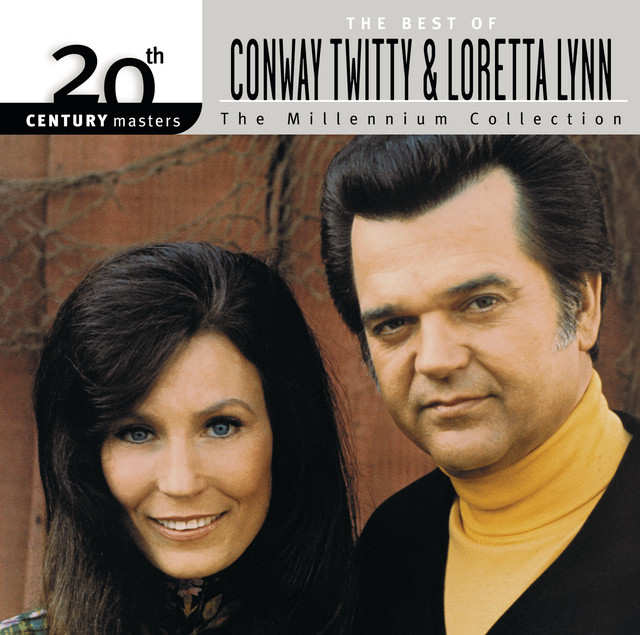
A Searing Tale of River-Separated Love and Unbreakable Devotion
The golden age of country music, that sweet spot of the 1970s, gifted us with a host of unforgettable duets, but few burned with the passionate, almost mythic intensity of Conway Twitty and Loretta Lynn’s masterpiece, “Louisiana Woman, Mississippi Man”. Released in the summer of 1973 as the lead single from their album of the same name, this iconic track didn’t just climb the charts—it owned them. It quickly rocketed to the coveted Number 1 spot on the Billboard Hot Country Singles chart, marking one of the many triumphant collaborations between this legendary duo. For listeners of a certain age, particularly those who remember country radio pulsating with life, this song is a pure distillation of that era’s sound: raw, vibrant, and utterly sincere.
The song’s sheer popularity cemented the duo’s reign as the foremost male/female vocal pairing in country music. Their chemistry, which sizzled with a palpable tension in their earlier duets, found its full, glorious expression here. It wasn’t just a hit; it was an undeniable cultural moment, an anthem for lovers separated by distance, but bound by a love stronger than any geographical barrier. The track remained at the top of the country charts for two solid weeks, a testament to its immediate and widespread appeal. It became one of the defining songs of both Twitty’s and Lynn’s careers, showcasing a vocal interplay that remains unmatched.
The core of the song lies in its simple, yet profoundly relatable, narrative. It paints a vivid picture of a devoted, hardworking couple separated by the mighty Mississippi River. The song’s genius is that it personifies the river not just as a physical obstacle but as a metaphor for all the trials and distance that life throws between people who belong together. Loretta Lynn is the spirited “Louisiana Woman”, and Conway Twitty is the steadfast “Mississippi Man”. The lyrics chronicle their relentless determination to cross that natural divide for a night in each other’s arms. Lynn’s part famously declares, “I’m a Louisiana woman / He’s a Mississippi man / We got a love big as the river / But the river’s got to lose”. This line, delivered with her characteristic feisty conviction, encapsulates the entire theme: love’s ultimate triumph over adversity.
The story behind this classic is less one of drama and more a perfect meeting of talent and material. The song was penned by the brilliant songwriting team of Becky Hobbs and Howard Bellamy (of the Bellamy Brothers), though at the time, only Hobbs was credited. They brilliantly captured a kind of rough-hewn, rural romance—a love story predicated not on moonbeams and lace, but on hard labor, swift currents, and a yearning that cuts through the night air. When Twitty and Lynn received the song, they instinctively knew it was a perfect fit, playing directly to the established, beloved personas they had created together: the sultry, soulful baritone of Twitty contrasting with Lynn’s high-spirited, earthy soprano. Their performance is less a sung duet and more a playful, passionate conversation, crackling with desire and mutual respect.
“Louisiana Woman, Mississippi Man” is fundamentally a song about unyielding, blue-collar devotion. The Mississippi River, often a symbol of power, change, and sometimes danger in American lore, is reduced to a mere inconvenience by the power of their shared commitment. It evokes a simpler time, when a long drive, a ferry ride, or a risky crossing was a small price to pay for the touch of the one you loved. For those who remember the sound of their old AM radio playing this tune, it’s not just music; it’s a portal back to a time of earnest emotion and powerful, straightforward storytelling, making it a timeless monument in the pantheon of country music.